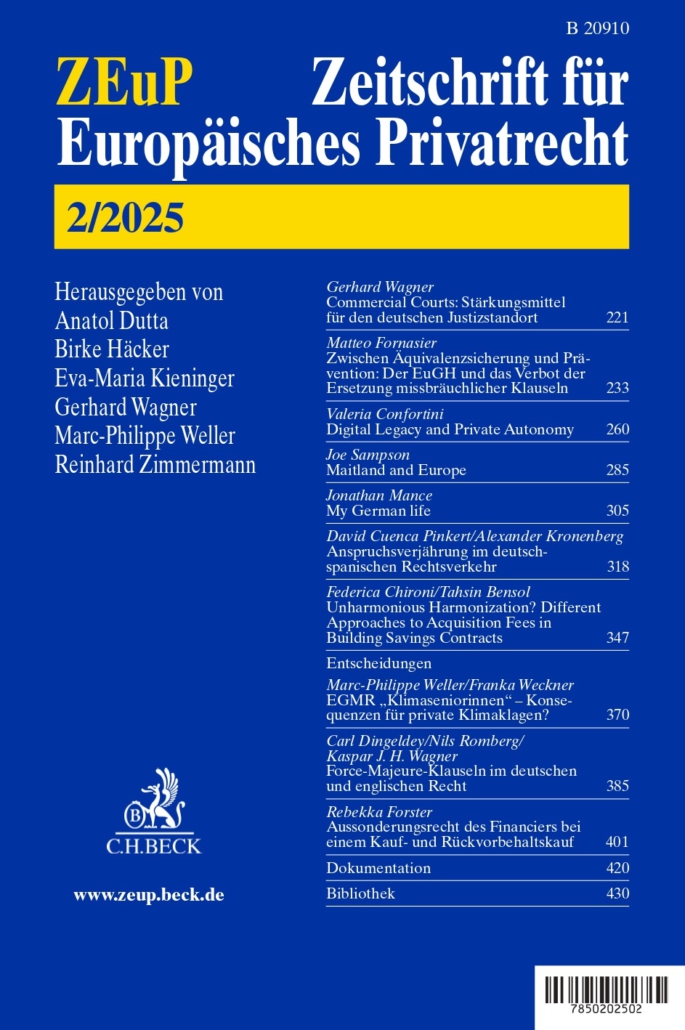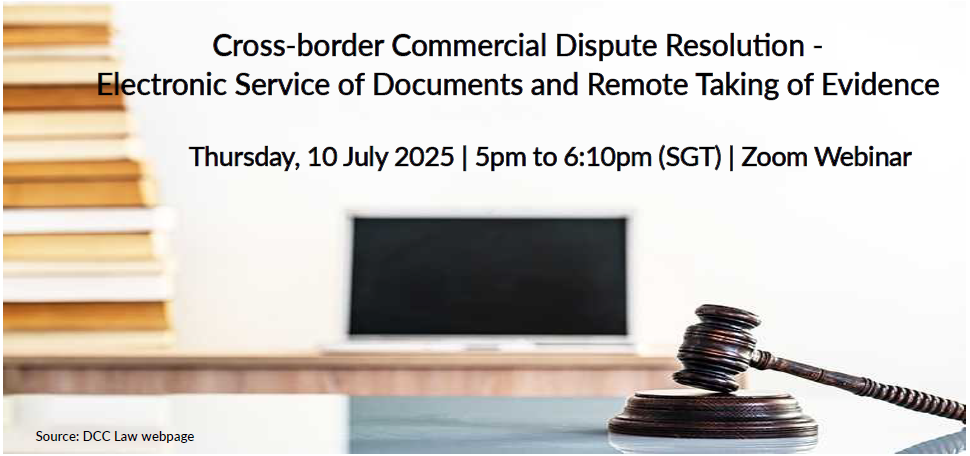Views
The jurisdictional hurdles of s 26 of the Trans-Tasman Proceedings Act 2010 (Cth), in the context of interim anti-enforcement relief in aid of New Zealand proceedings
The New Zealand High Court recently granted a permanent anti-enforcement injunction in relation to a default judgment from Kentucky in Kea Investments Ltd v Wikeley Family Trustee Limited [2023] NZHC 3260. The plaintiff, a British Virgin Islands company, claimed that the defendants had committed a tortious conspiracy against it because the Kentucky default judgment was based on fabricated claims intended to defraud it. The defendants were a New Zealand company, Wikeley Family Trustee Ltd (WFTL), and persons associated with the company.
In an undefended judgment, the High Court granted the injunction, awarded damages for the costs incurred in the foreign proceedings (referring to cases such as Union Discount Co Ltd v Zoller [2001] EWCA Civ 1755, [2002] 1 WLR 1517 by analogy), and issued a declaration that the Kentucky judgment would not be recognised or enforceable in New Zealand. As noted previously on this blog (see here), the case is an interesting example of “the fraud exception to the principles of comity” (Kea Investments Ltd v Wikeley (No 2) [2023] QSC 215 at [192]).
Second Act in Dutch TikTok class action on privacy violation: court assesses Third Party Funding Agreements
Written by Eduardo Silva de Freitas (Erasmus University Rotterdam), Xandra Kramer (Erasmus University Rotterdam/Utrecht University) & Jos Hoevenaars (Erasmus University Rotterdam), members of the Vici project Affordable Access to Justice, financed by the Dutch Research Council (NWO), www.euciviljustice.eu.
Introduction
Third Party Litigation Funding (TPLF) has been one of the key topics of discussion in European civil litigation over the past years, and has been the topic of earlier posts on this forum. Especially in the international practice of collective actions, TPLF has gained popularity for its ability to provide the financial means needed for these typically complex and very costly procedures. The Netherlands is a jurisdiction generally considered one of the frontrunners in having a well-developed framework for collective actions and settlements, particularly since the Mass Damage Settlement in Collective Actions Act (WAMCA) became applicable on 1 January 2020 (see also our earlier blogpost). A recent report commissioned by the Dutch Ministry of Justice and Security found that most collective actions seeking damages brought under the (WAMCA) have an international dimension, and that all of these claims for damages are brought with the help of TPLF.
Is this a Conflicts Case?
In Sharp v Autorité des marchés financiers, 2023 SCC 29 (available here) the Supreme Court of Canada has held that a Quebec administrative tribunal, the Financial Markets Administrative Tribunal, can hear a proceeding brought by the administrative agency that regulates Quebec’s financial sector, the Autorité des marchés financiers, against four defendants who reside in British Columbia. The AMF alleged in the proceedings that the defendants had contravened the Quebec Securities Act.
The courts below, including a majority of the Quebec Court of Appeal, focused the analysis on s. 93 of the Act respecting the Autorité des marchés financiers, CQLR, c. A-33.2, which grants the FMAT jurisdiction to make determinations under the Securities Act. They interpreted and applied this provision in light of Unifund Assurance Co. v Insurance Corp. of British Columbia, 2003 SCC 40, a leading decision on the scope of application of provincial law, which held that a provincial regulatory scheme constitutionally applies to an out-of-province defendant when there is a “real and substantial connection”, also described as a “sufficient connection”, between the province and the defendant. This test was met on the facts [see para 22] and so the FMAT had jurisdiction. This analysis is not generally understood as being within the field of conflict of laws. Indeed, the majority of the Court of Appeal “saw no conflict of jurisdiction or any conflict of laws that would require the application of private international law rules to this case” [see para 29].
News
ZEuP – Zeitschrift für Europäisches Privatrecht 2/2025
A new issue of ZEuP – Zeitschrift für Europäisches Privatrecht is now available and includes contributions on EU private law, comparative law and legal history, legal unification, private international law, and individual European private law regimes. The full table of content can be accessed here.

The following contributions might be of particular interest for the readers of this blog:
- Anspruchsverjährung im deutsch-spanischen Rechtsverkehr
David Cuenca Pinkert and Alexander Kronenberg on the statute of limitation in cross-border situations involving Germany and Spain: Against the background of the relevance of the application of foreign law in practice, the article analyses the institute of the statute of limitations under Spanish substantive law and also deals with similarities and differences to German law as well as selective references to conflict of laws and particularities. Due to its practical relevance, the article focuses on the treatment of the limitation period for tortious claims for damages, especially as a result of road traffic accidents. - EGMR „Klimaseniorinnen“ – Konsequenzen für private Klimaklagen?
Marc-Philippe Weller and Franka Weckner comments on the decision by the ECtHR in Klimaseniorinnen and discuss the consequences of this decision for climate litigation brought before civil courts.
ABLI-HCCH webinar: Electronic Service of Documents and Remote Taking of Evidence (10 July 2025)

Written by Catherine Shen, Senior Assistant Director, ABLI
Following successful sessions in 2021, 2022 and 2023, the Singapore-based Asian Business Law Institute (ABLI) and the Permanent Bureau of the Hague Conference on Private International Law (HCCH) return after a one-year hiatus with their fourth joint webinar, this time on electronic service of documents and remote taking of evidence.
Titled Cross-border Commercial Dispute Resolution – Electronic Service of Documents and Remote Taking of Evidence, the webinar will take place on Thursday 10 July between 5 to 6:10pm (Singapore time) or 11am to 12:10 noon (CEST), and is expected to discuss, among others, electronic transmission of requests under the Service Convention, such as the use of IT for communication among Central Authorities and other competent authorities, service by electronic means across different jurisdictions, and remote taking of evidence by video-link and electronic evidence under the Evidence Convention.
Invited speakers include Melissa Ford, Secretary of HCCH, Lucinda Orr, Partner of Enyo Law LLP, Justice Anselmo Reyes, International Judge of the Singapore International Commercial Court, and Dr Xu Guojian, Senior Partner of SGLA Law Firm.
More about the webinar and its speakers can be found in the flyer.
For more information or to register, click here. Early bird discount is available till 10 June. Queries about the webinar can be directed to Catherine of ABLI at abli_info@abli.asia.
XVIII ASADIP Conference – Rio de Janeiro, 7-9 August

Registration has now opened to participate in the XVIII ASADIP Conference – Regional Imaginaries, Global Resonance: Inter-American Private International Law and the World Stage, to be held in the city of Rio de Janeiro, Brazil from 7 to 9 August 2025. This year, ASADIP is organising the Conference in collaboration with the Organisation of American States, on the occasion of the 50th anniversary of the Inter-American Conference on Private International Law and the OAS Course on International Law. Preliminary programme, registration link and further info.


